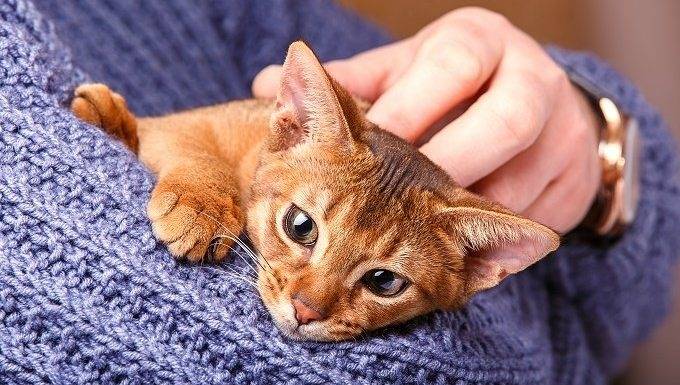Small animals are more like kids than we think. Therefore, the attitude towards them should be appropriate. If you have decided to get a pet, then it is a huge mistake to leave it to fend for itself, especially when it is growing, and its character is not formed yet. Keep in mind that cats live on an average of 10 years, and it only depends on you, whether this time for both of you will be a pleasant memory.
1. What age it is best to get a kitten?
Experts advise getting a kitten at the age of two months - it is already independent enough to get it from its mother, but its mind is more flexible, you can raise it as you see.
2. What to teach a kitten first?
First, you should teach a kitten to the tray. To do this, choose a place away from where the kitten eats, or it just does not understand why you put it near a plate of food when it wants to use the toilet. It gets out of the tray, eats some food from the plates, and goes to do its job away from their "dining room".
As the filler for the cat's tray chooses a clay filler of the smallest size, you can find. Ideally, it will be similar to fine sand. Using other types of filler is also acceptable, as long as the size of the grains is small, otherwise, the kitten will injure its paws or eat the filler, trying to try everything to taste. If you are so lucky that your pet is not fussy, use ordinary newspapers. This option is ideal for kittens: newspaper is safe, economical, has great rustling can be easily removed.
3. How to play with the kitten?
It may seem that this topic is unimportant, but it is not so. Those days are gone when cats were used as a means of getting rid of mice. A cat in a city apartment is a family member, which temper and appearance speak of the hosts no less than the state of the apartment. If you are looking for a friend in a pet, it is not necessary to treat the kitten like a stimulus, vent its anger on it, or offend and insult the animal. The cat will never love someone who treats it with physical or moral strength. Learn well to the world by the example of your family, a member of which is a small kitten. Be a mom or a dad for it. That is how it sees you throughout its growth. It will call you for help by meowing or hiding at your feet when becomes scary. It will ask for a delicious meal, preferring it useful, as you like. It will communicate with you, play, sleep, feeling the warmth of human friendliness. For this, we get cats. For the sake of warmth, beauty, and comfort, they are able to give our house.
4. Cats and small children.
We all have our own unique character, and the animals are no exception. Cats are very intelligent creatures, they never hurt a harmless child (unless, of course, the cat is not sick and it is rightly brought up); the animals feel an amazingly thin line between intentional infliction of harm and playing of the unreasonable baby. But there is no iron patience and once a cat can fight back.
You must be able to discern when the aggression occurs intentionally (like an animal and a child), but when it is reflex. It is meaningless to punish for the manifestation of natural reflexes. You, as an adult, should try to avoid such situations in which the animals have to defend themselves. Do not allow your child to harm the cat. Then, the cat will not touch it either. It would be an excellent workout and healthy attitude to life for a young person.
FAQ
What cat runs the fastest?
The cheetah is considered to be the fastest running land animal, capable of reaching speeds of up to 70 miles per hour (112 kilometers per hour) over short distances. However, among domestic cats, the Egyptian Mau is considered to be one of the fastest, with a top running speed of around 30 miles per hour (48 kilometers per hour). Other fast cat breeds include the Bengal, Siamese, Savannah, and Abyssinian. However, the running speed of domestic cats can vary depending on factors such as their age, weight, and overall health.
Why cats raise their paw?
Cats often raise their paw for a variety of reasons. Here are some of the common reasons why cats raise their paw: Playful behavior: When cats are playing, they may raise their paw as a playful gesture. They may also tap or swat at toys or other objects with their paw. Attention-seeking: Cats may raise their paw to get their owner's attention or to indicate that they want to be petted or played with. Greeting behavior: When cats greet each other or their owners, they may raise their paw as a friendly gesture. This can also be seen as a sign of respect or submission. Marking behavior: Cats have scent glands in their paw pads, and they may raise their paw to mark their territory with their scent. Defensive behavior: In some cases, cats may raise their paw as a defensive posture, especially if they feel threatened or cornered.






